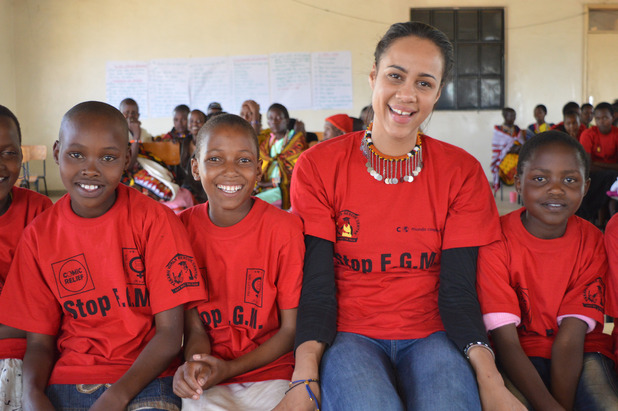FGM: Stop cutting our Girls
Comic Relief bravely and successfully raises the issue of Female Genital Mutilation in their BBC documentary (live last Wednesday at 10pm and now available on BBC iPlayer). Zawe Ashton investigates FGM abroad and in the UK. Hard-hitting documentary 'Stop cutting our Girls' highlights the fact that millions of women are at risk of Female Genital Mutilation (FGM). Please note that some of this documentary is unpleasant and the subject material may not be for the feint hearted.Shocking Statistics about FGM
Comic Relief's documentary reveals some shocking statistics, including the fact that 130000 UK have survived FGM and that over 3 million women worldwide are at risk of FGM. Several UK survivors of FGM were brave enough to raise awareness in this documentary and share their stories.The reality of FGM is that it leaves both physical and emotional scars. Girls are at risk of bleeding and infection. Many survivors of FGM not be able to have children in the future.The Problem with Discussing FGM and Raising Awareness
Many people either don't know what FGM is. The removal of the female genitalia is abuse. Of those who know what FGM is, many do not fully understand it or do not realise how widespread the problem is, particularly in the African subcontinent.Many people do not talk about FGM as it is still a taboo subject. Zawe Ashton experiences the difficulty in discussing these issues when she visits an FGM workshop in a school in East London. How can FGM be discussed when the students are not really aware of female body parts?
Trying to Prevent FGM
The Comic Relief special speaks to the UK Border Forces who explain the vigilance needed during what is referred to as 'Cutting Season'. Border Force agents were stopping people at the airport to both raise awareness and challenge those who could potentially be taking girls to be 'cut'.Despite raising awareness in the UK, there are many parts of Africa where FGM is seen as a tradition that should be continued through generations. Even where FGM is illegal, there is evidence of it taking place illegally. Zawe Ashton bravely interviews a woman in Kenya who is a 'cutter' and reveals that it is seen as a business.
The 'backlash' against girls who are anti-FGM in parts of Africa needs to be tackled to solve the problem of FGM. Education needs to take place at a grass roots level. The World Health Organisation has conducted an international response, with a WHO resolution to eliminate FGM.
Image: @BBC http://www.reveal.co.uk/lifestyle/news/a633045/wednesdays-tv-pick-stop-cutting-our-girls-a-comic-relief-special.html
